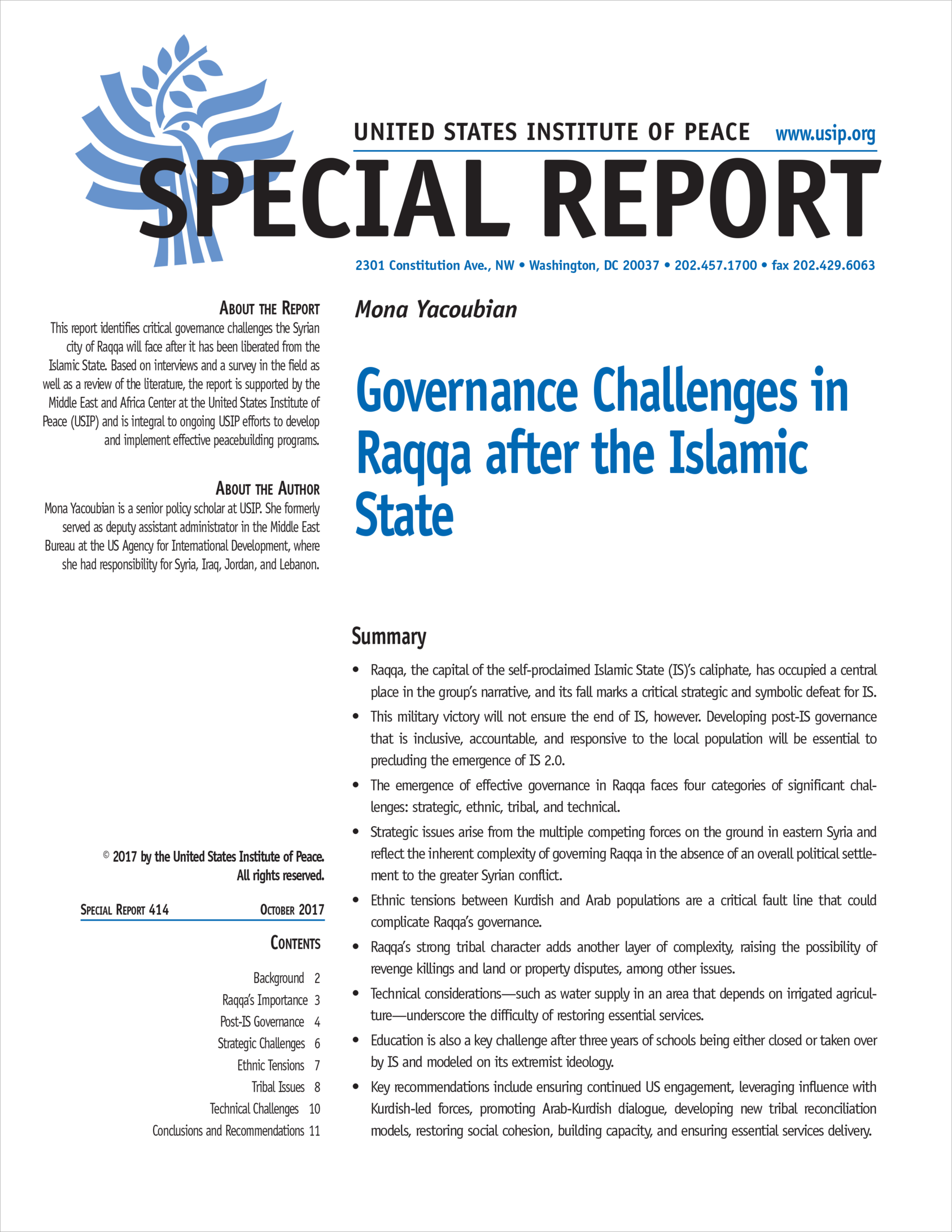The fall of the Syrian city of Raqqa—the capital of the self-proclaimed Islamic State (IS)’s caliphate—will be a critical defeat for IS. Yet the success of the counter-campaign will ultimately be determined not by the battlefield win, but instead by what follows. This report identifies the critical governance challenges that Raqqa will face and need to address if it is to prevent a resurgence of violence and extremism.
Summary
- Raqqa, the capital of the self-proclaimed Islamic State (IS)’s caliphate, has occupied a central place in the group’s narrative, and its fall marks a critical strategic and symbolic defeat for IS.
- This military victory will not ensure the end of IS, however. Developing post-IS governance that is inclusive, accountable, and responsive to the local population will be essential to precluding the emergence of IS 2.0.
- The emergence of effective governance in Raqqa faces four categories of significant challenges: strategic, ethnic, tribal, and technical.
- Strategic issues arise from the multiple competing forces on the ground in eastern Syria and reflect the inherent complexity of governing Raqqa in the absence of an overall political settlement to the greater Syrian conflict.
- Ethnic tensions between Kurdish and Arab populations are a critical fault line that could complicate Raqqa’s governance.
- Raqqa’s strong tribal character adds another layer of complexity, raising the possibility of revenge killings and land or property disputes, among other issues.
- Technical considerations—such as water supply in an area that depends on irrigated agriculture—underscore the difficulty of restoring essential services.
- Education is also a key challenge after three years of schools being either closed or taken over by IS and modeled on its extremist ideology.
- Key recommendations include ensuring continued US engagement, leveraging influence with Kurdish-led forces, promoting Arab-Kurdish dialogue, developing new tribal reconciliation models, restoring social cohesion, building capacity, and ensuring essential services delivery.
About the Report
This report identifies critical governance challenges the Syrian city of Raqqa will face after it has been liberated from the Islamic State. Based on interviews and a survey in the field as well as a review of the literature, the report is supported by the Middle East and Africa Center at the United States Institute of Peace (USIP) and is integral to ongoing USIP efforts to develop and implement effective peacebuilding programs.
About the Author
Mona Yacoubian is a senior policy scholar at USIP. She formerly served as deputy assistant administrator in the Middle East Bureau at the US Agency for International Development, where she had responsibility for Syria, Iraq, Jordan, and Lebanon.
